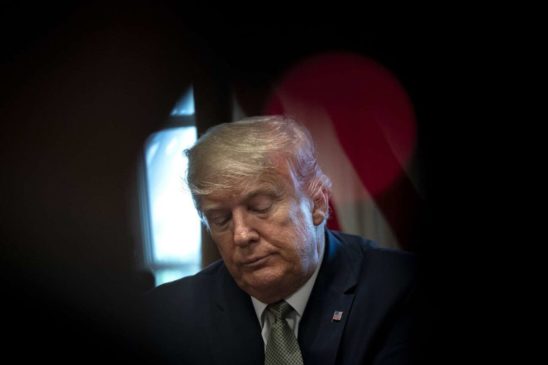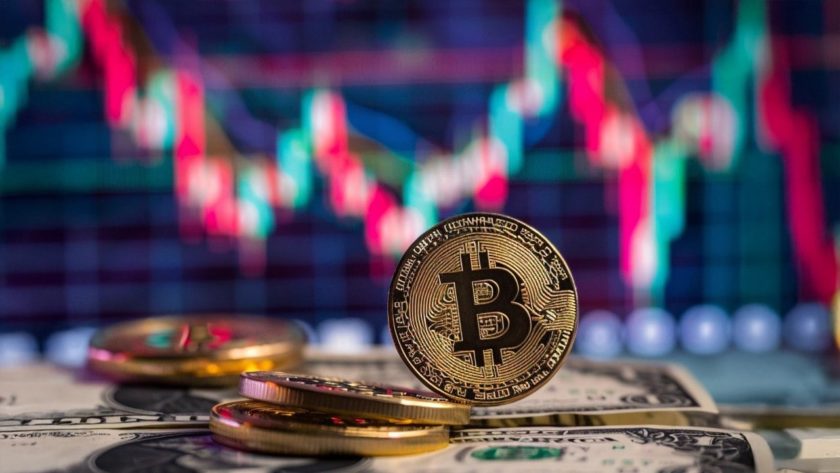- Donald Trump proved Wednesday that attacking China is his top priority.
- Trump is even willing to fire shots at Xi Jinping despite their rapidly-unraveling trade deal.
- Rising tension with China will cap stock market gains – and maybe even ignite a sell-off.
Before coronavirus, Donald Trump’s reelection platform was clear: the strength of the U.S. economy and the roaring stock market. It’s amazing how quickly things can change.
At this point, the economy is expected to remain depressed throughout election season – and maybe long after.
This leaves Mr. Trump with the unenviable task of selling either a dubious coronavirus response or a tenuous stock market recovery to American votes.
Trump Faces a Nauseating Dilemma – And Tips His Hand
The nature of the 2020 campaign has forced him to make a choice, and it appears he’s doubling down on coronavirus.
The president has already faced harsh criticism for his administration’s response to the crisis. If a second wave rears its ugly head in the fall, Trump can all but kiss the Oval Office goodbye.
He appears to be preparing for that eventuality by planting seeds of doubt and skepticism of China’s role in the global pandemic.
From criticizing China’s lack of transparency to insinuating Chinese scientists may have engineered COVID-19 in a Wuhan lab, he’s wasted no opportunity to transfer blame.
Donald Trump’s Twitter Tirade Could Destroy Relations With Beijing
Through it all, Trump maintained that his relationship with Chinese leader Xi Jinping was “strong.”
But he strayed from that message on Wednesday in a Twitter rant that could completely derail the already strained relations between the two nations.
It’s unclear exactly who the “wacko in China” is, but there’s been some speculation that he was referring to China’s Foreign Ministry Spokesperson Zhao Lijian.
Zhao has been critical of the U.S. on his own Twitter feed, rebuking Trump’s jabs at the World Health Organization and condemning the president’s instance on finding the coronavirus’ origin.
But the key aspect of Trump’s (latest) Twitter rant was one particular tweet in which he appeared to be calling out Xi Jinping himself.
That’s a startling departure from his comments at the outset of the pandemic, and it marks a huge step up in the conflict.
The U.S.-China trade deal is already dangling by a thread. Without the supposedly “strong” relationship between Trump and Xi, it’s hard to envision that thread will hold.
A Trade War With China Would Derail the Stock Market
Trump thinks getting tough on China will shield him from coronavirus blame, but it also risks inciting a devastating trade war that will clobber the economy – and the stock market.
Most analysts expected the two sides to continue posturing without ever making any solid advances to put the Phase 1 trade deal at risk.
But Trump’s Twitter outburst is the first sign of a new political calculus. He’s willing to take a sledgehammer to the stock market if it means China takes the blame for coronavirus.
Trump is painting China as the villain, and he’s positioning Joe Biden as Beijing’s ally. He’s angling to convince Americans that a vote for Biden is a vote for China.
The simmering tensions with Beijing are still largely confined to Twitter, but the conflict is already starting to emerge as a major worry for investors.
Of Course Trump Is Willing to Push the Stock Market Over the Edge
Investors will suffer deja vu as the stock market closely follows the deteriorating relationship between Beijing and Washington.
Indeed, stocks are currently trading near the same levels they were last summer when Donald Trump and Xi Jinping began their rollercoaster trade talks.
Back then, the stakes weren’t quite as high, and the market was able to rebound easily on positive news. But a new trade war with China could be the final kick the stock market needs to send it over a cliff.
And make no mistake, Trump won’t hesitate to push it over the edge.
Disclaimer: This article represents the author’s opinion and should not be considered investment or trading advice from CCN.com. Unless otherwise noted, the author has no position in any of the stocks mentioned.
This article was edited by Josiah Wilmoth.




